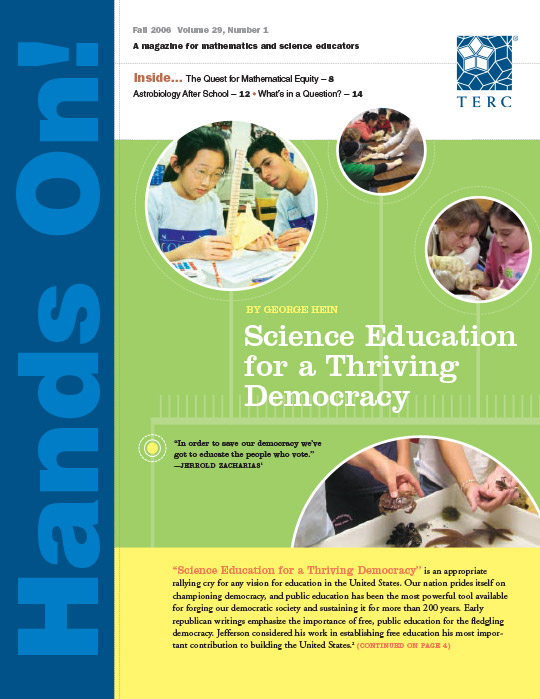
Articles include:
* Science Education for a Thriving Democracy
* The Quest for Mathematical Equity
* Astrobiology After School
* What’s in a Question
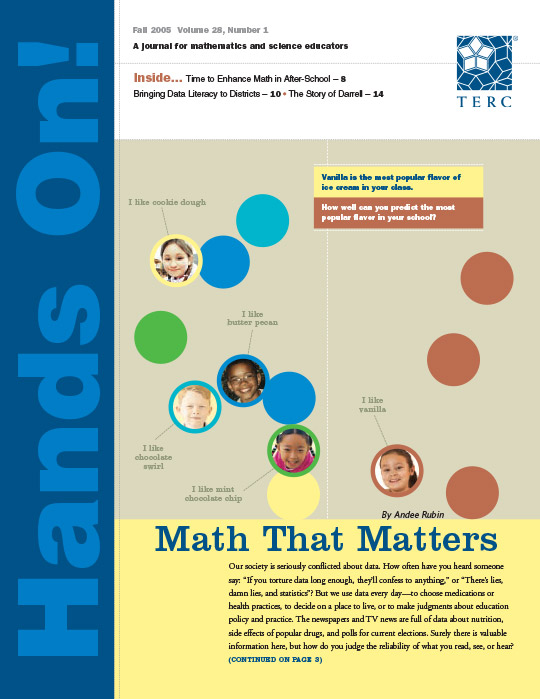
Articles include:
* Math That Matters
* Time to Enhance Math in After-School
* Bringing Data Literacy to Districts
* The Story of Darrell
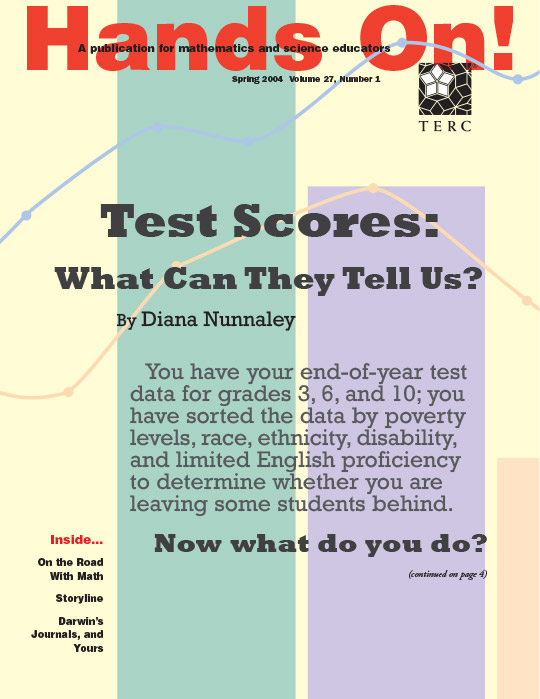
Articles include:
* Test Scores: What Can They Tell Us?
* On the Road With Math
* Storyline
* Darwin’s Journals, and yours
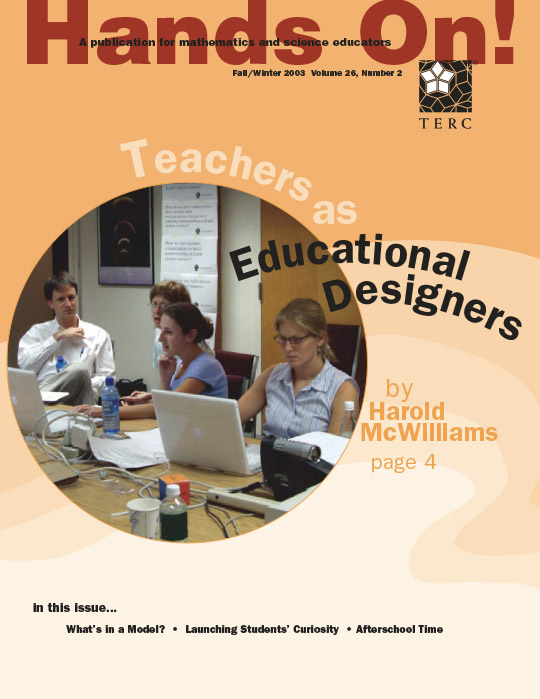
Articles include:
* Teachers as Educational Designers
* What’s in a Model?
* Launching Students’ Curiosity
* Afterschool Time
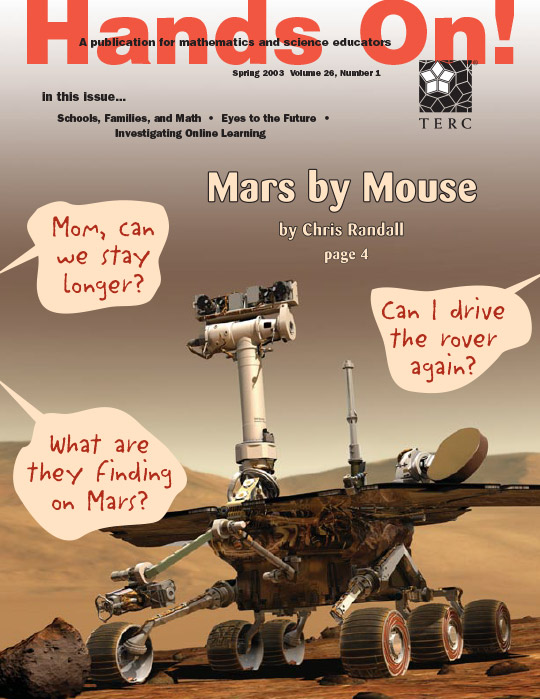
Articles include:
* Mars by Mouse
* Schools, Families, and Math
* Eyes to the Future
* Investigating Online Learning
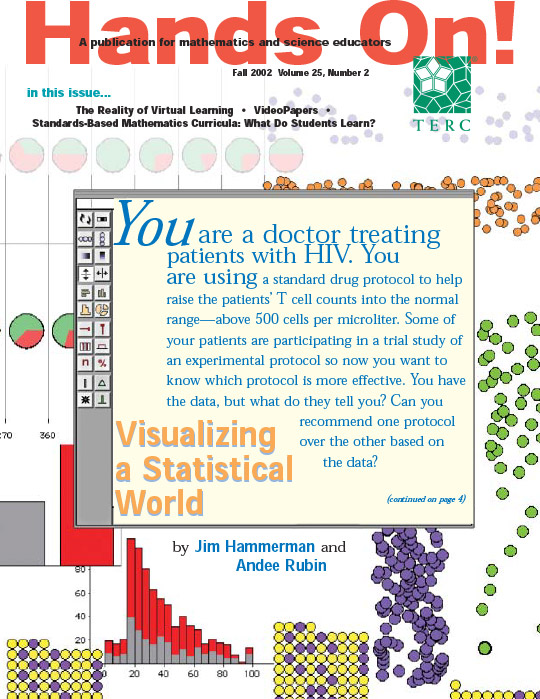
Articles include:
* Visualizing a Statistical World
* The Reality of Virtual Learning
* VideoPapers
* Standards-Based Mathematics Curricula: What Do Students Learn?
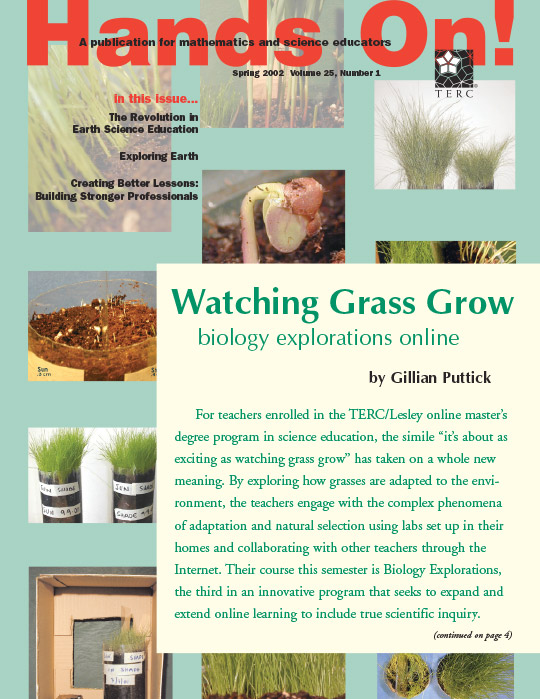
Articles include:
* Watching Grass Grow: Biology Explorations Online
* The Revolution in Earth Science Education
* Exploring Earth
* Creating Better Lessons: Building Stronger Professionals
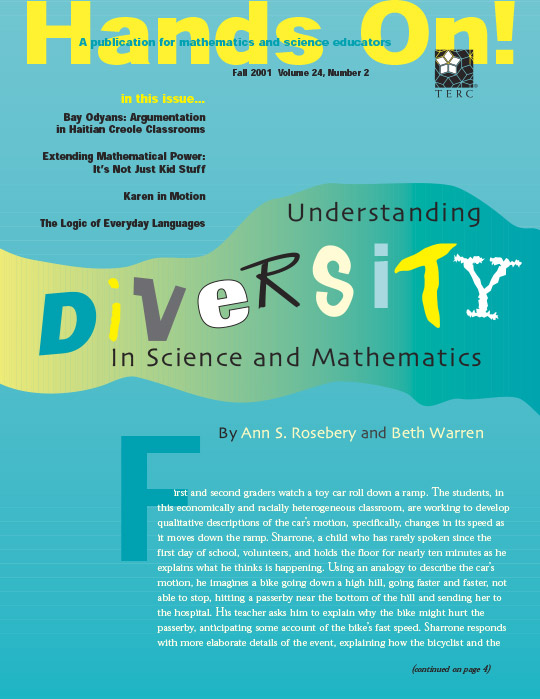
Articles include:
* Understanding Diversity in Science and Mathematics
* Bay Odyans: Argumentation in Haitian Creole Classrooms
* Extending Mathematical Power: It’s Not Just Kid Stuff
* Karen in Motion
* The Logic of Everyday Languages
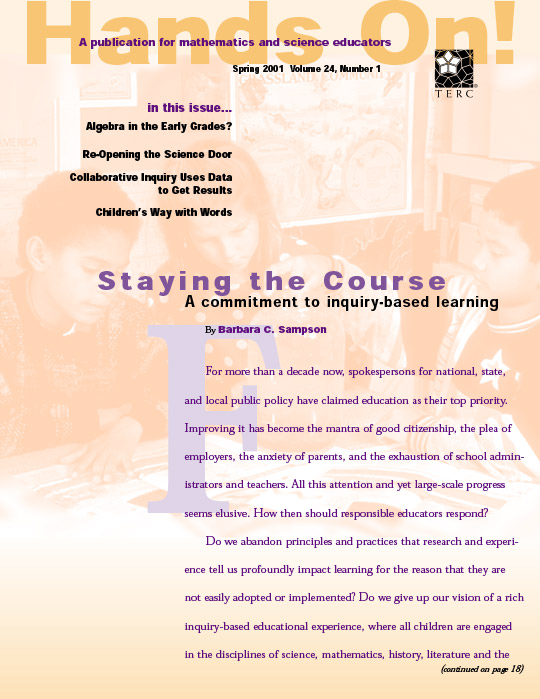
Articles include:
* Staying the Course: A Commitment to Inquiry-Based Learning
* Algebra in the Early Grades?
* Re-Opening the Science Door,
* Collaborative Inquiry Uses Data to Get Results
* Children’s Way with Words
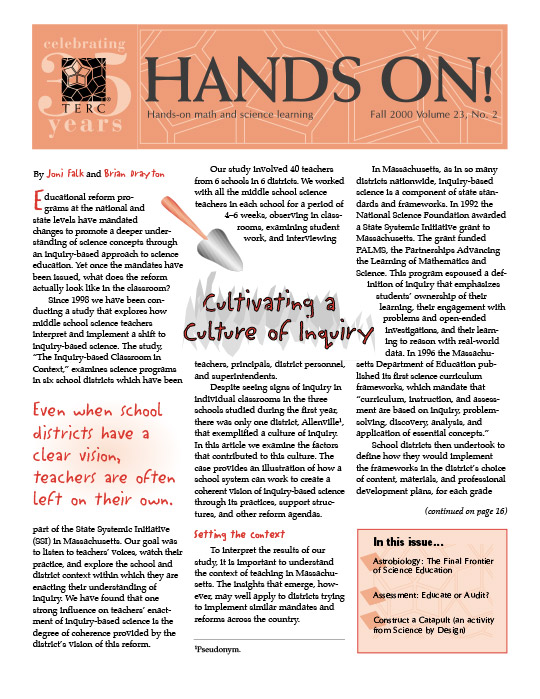
Articles include:
* Cultivating a Culture of Inquiry
* Base x Height: The Transformation of a Rectangle
* Astrobiology: The Final Frontier of Science Education
* Assessment: Educate or Audit?
